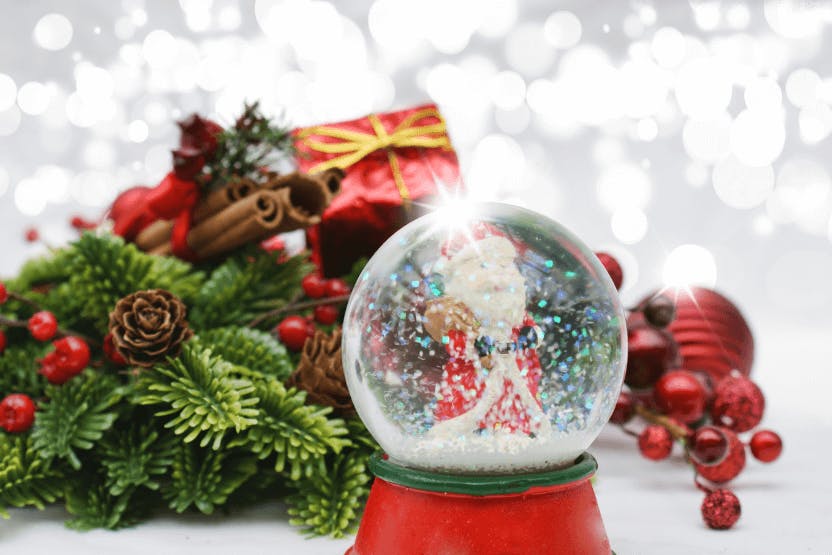- Home
- Dog Wellness
- Snow Globes: Harmless Fun or Hidden Danger to Your Dog?

Save on pet insurance for your pet
You don't have to choose between your pet and your wallet when it comes to expensive vet visits. Prepare ahead of time for unexpected vet bills by finding the pawfect pet insurance.
Popular for years as both a cheap toy for kids and as ornate, beautiful decorations to proudly display on your tables or shelves, snow globes hide a dirty little secret. Some of them are filled with ethylene glycol, the same thing that is in antifreeze and some windshield wiper fluids, and unfortunately, it is simultaneously tasty and deadly to your dog. While most antifreeze poisonings occur from antifreeze leaked from a car, there is enough ethylene glycol in snow globes to potentially poison your dog if the snow globe gets knocked over and breaks open.
- Within 30 minutes to 12 hours, your dog will appear drunk, may drool profusely, and there may be vomiting, seizures, and excessive thirst and urination.
- Between 12 to 24 hours, these symptoms may appear to get better, but your dog may have an elevated heart rate, labored breathing, and dehydration.
- Within 36 to 72 hours, kidney failure may begin to occur with symptoms of severe lethargy, coma, depression, vomiting, seizures, and drooling.
- Removing toxins by inducing vomiting or pump out the contents of the stomach, if within an hour of consumption.
- Administering IV ethanol or fomepizole that prevents metabolism of ethylene glycol.
- Administering a sodium bicarbonate IV to correct acidity in blood.
- Giving fluids, electrolytes and diuretics to support dog's body.
- In cases of renal failure, dialysis may be recommended.
- If you are buying the snow globe, try to find ones made of plastic rather than glass to prevent shattering if knocked over.
- If snow globes are labeled, be sure to avoid any with ethylene glycol in the ingredients list.
- Put snow globes up high where your dog (or cat) can't get them.
- Keep snow globes out of the hands of unsupervised small children who may accidentally drop them or leave them where your dog can reach them.
- Make sure all members of the household know the dangers of snow globes for your pets.
- DIY your own snow globes which you can personalize with miniatures of your pet, or for gifts, using safe water and plastic globes.
- Clearly post information for your vet, a nearby emergency vet clinic, and the Pet Poison Helpline for everyone to access immediately if needed.
With a little prevention and thoughtfulness, you can make sure your dog stays safe and enjoys this holiday season!
Exposure to ethylene glycol can be expensive to treat. Start searching for pet insurance today with Wag!’s pet insurance comparison tool and find the “pawfect” one for your pet in just a few clicks!
